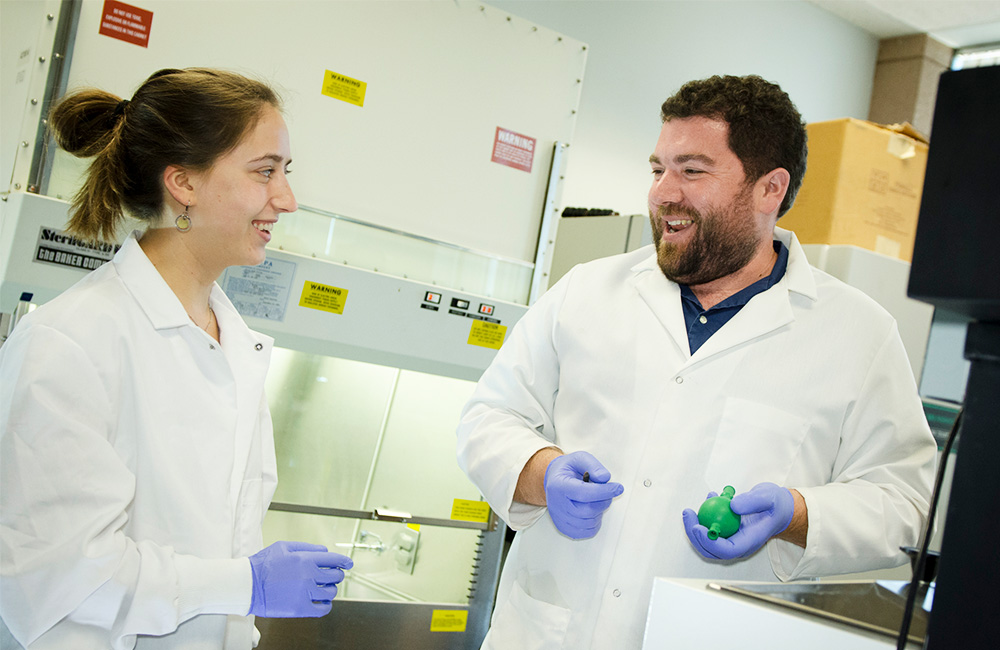Biology Professor Receives NSF Funding
September 5, 2017
The National Science Foundation has awarded a grant of $112,226 to Harvey Mudd College Professor of Biology Daniel Stoebel for his project “RUI: The transcriptional response to quantitative variation in RpoS concentration in E. coli.” The award is expected to total $327,962 over three years.
This proposal will expand opportunities for students in many ways, including funding summer research, providing supplies and equipment and supporting costs associated with genome sequencing. The grant will also provide support for Stoebel’s research students to attend national scientific meetings, exposing them to cutting-edge work and giving them the chance to network with potential graduate advisors.
In addition to furthering his research on the molecular biology and evolution of bacterial regulatory networks, Stoebel is equally focused on the broader impacts he anticipates as a result of the funding, specifically improving students’ experience in the lab and increasing opportunities for students traditionally underrepresented in the sciences.
To accomplish this, Stoebel is collaborating with Harvey Mudd College’s Upward Bound program, which works with local high school students who aspire to be the first generation in their families to attend college. Partnering with Upward Bound Director Angie Covarrubias Aguilar, Stoebel will provide several opportunities for Upward Bound participants, including a four-week summer research internship for high school students and a 10-week summer research program for Upward Bound graduates in their first or second year of college.
Stoebel will add a mentorship component to his lab as well and is excited about Harvey Mudd students and Upward Bound participants reaping the mutual benefits of a near-peer mentor relationship. “The incorporation of UB students into my research lab will provide an important educational experience for all involved, help to diversify the population of my lab and inspire students to consider a future in science,” Stoebel says.
Lamenting the fact that most students’ lack the experience of working on a research project where the outcome is genuinely unknown, Stoebel hopes to expose them to researching open-ended research experiments. “Students learn the mindset of scientific discovery best when they are making genuine discoveries,” he says. “When students show me their data and ask, ‘Is this right?’ I want to be able to honestly tell them ‘I don’t know. Let’s think about how we might be able to tell.’”
Stoebel and his student researchers study the E. coli global transcription regulator RpoS, seeking to learn how RpoS levels vary across strains and environments, and measuring the effect of this variation in RpoS level on the transcriptome. They study how RpoS interacts with other transcription factors to influence patterns of transcription and explore how the regulation of RpoS levels varies in pathogenic relatives of laboratory E. coli.
“I’m excited about getting answers to questions that we’ve been thinking about for the last five years,” Stoebel says. “In particular, our recent work documented some interesting patterns in how E. coli regulates its genes. Over the course of this grant, we aim to understand the mechanistic details of how those patterns of regulation arise and what the consequences of that regulation are for cell physiology. I’m excited to work with my research students on these questions.”
